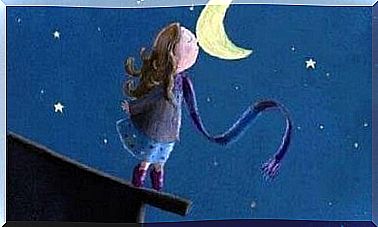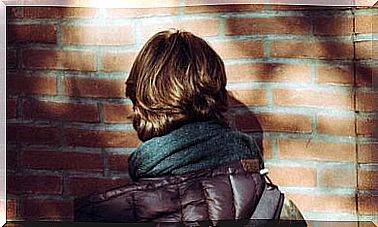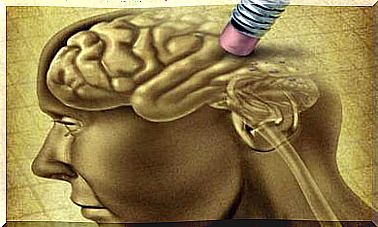Mystical Delusion: What It Is And How It Manifests Itself

The mystical delusion is an interpretation of reality with three characteristics. The first is that this interpretation has the religious theme as its central content; the second is that it is not based on a judgment not shared by the society or culture in which it is produced; the third is that this situation causes a person to feel profoundly unwell and influences relations with others and the development of social life.
The mystical delusion has also been called the messianic delusion because it is common for those who suffer from it to feel elected to fulfill a certain mission, entrusted by the divinity.
Since it is extremely difficult to limit a religious belief, the mystical delusion is sometimes not easy to spot.
The determining factor is the negative effect caused in the person. Someone may have a faith that is absurd to others. But even so, it couldn’t be labeled a delusion if it doesn’t cause distress and maladjustment.
More than truthfulness or falsity, it is the intensity, persistence and damage that it causes to the person to turn a mental content into delirium.
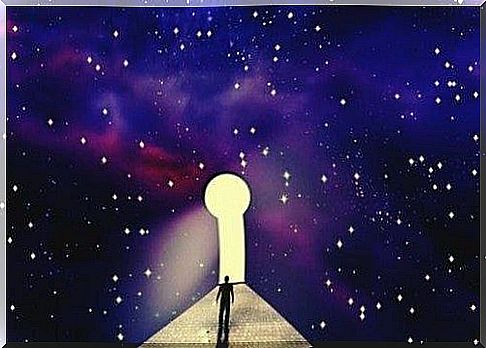
From religion to mystical delirium
Religion is the belief in the existence of a divine or supernatural power, which must be worshiped and obeyed. It is generally sealed by an ethical code to follow and a set of rituals to be practiced.
The boundary between religion and delusion is not easy to establish. What is part of faith in one human group could be considered completely irrational in another.
Religious people, many times, adopt mysticism as a way of life. It can be defined as the maximum exaltation of religious sentiment. In this case, they assume a conduct that brings them closer to perfection from the point of view of their faith. At the same time, they seek a spiritual union with God, which they reach through intuition and ecstasy, mainly through rituals.
Well, sometimes it happens that the religious person constructs a judgment on reality not shared by other members of the same faith. This judgment becomes unchangeable and more and more intense.
When the mystical delusion occurs, the person perseveres in this judgment and this leads to a state of deep worry and anxiety.
The one who suffers from delirium begins to orient his life towards faith, which is anomalous or far from canonicity.
He stops studying, working and leading a life that can be considered “normal”. It often happens that his reasoning is based on hallucinations or pseudo-hallucinations, that is, altered perceptions of reality.
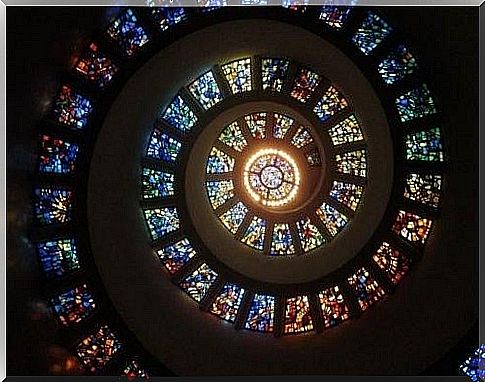
Contents and effects of the mystical delirium
Even if it seems paradoxical, the mystical delusion embodies the attempt to reconnect with reality. Previously, there was a deep break in the person’s psychic life.
In general terms, it frequently occurs in a person who has suffered a pile of pain that annihilates him. It cannot handle that suffering and it breaks down internally. Delirium, then, is a way to heal the inner wound.
It has been established that Catholic and Christian people suffering from delirium, in general, elaborate content related to guilt and atonement. Jews, on the other hand, tend more to suffer from delirium associated with the presence of night demons.
Beyond the delusional content, the fundamental aspect is that it greatly influences the life of those who suffer from it.
It causes great suffering and leads him to make false judgments about reality. It isolates him and prevents him from leading an efficient life.

Treatment of delirium
The intervention on the mystical delusion, as on any other form of delusion, is not easy. In general, sufferers oppose treatment as they judge external interventions as an interference with divine plans. For this reason, a long treatment is often required and, almost always, with slow results.
Psychiatry and medications can help moderate some effects of delusion, such as anxiety and hallucinations, when present. But beyond that, their scope is limited.
Psychotherapy, on the other hand, favors an introspection that improves the adaptation of the person and a more rational organization of faith.
The environment for the sick person is also fundamental. It is advisable that the family and those around the patient receive psychoeducation so that they can manage the situation. Understanding, affection and stimuli are also decisive.
More than making them abandon their faith, it is about helping the person to lead a less distressing and more balanced life. Provided that it is possible to succeed.
